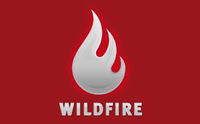Wildfire: Solving the Social Media Marketing Mystery for Local Businesses

Groupon’s smashing success has spawned hundreds of clones and, given its relatively simple technology and the absence of entry barriers, buoyed those imitators that they too may strike it rich in social commerce. Wildfire Promotion Builder comes at it from a different angle. Rather than wrangle with the behemoth head-on, the start-up sees itself as a complement that enables businesses of all sizes to design full-scale social media marketing campaigns.
CEO Victoria Ransom told BIA/Kelsey that whereas a business may enlist Groupon once or twice in a year to generate a flurry of activity, Wildfire works more regularly with its clients to drive them to interact with and reward their customers through “continual engagement” over social networks.
Ransom also stressed that Wildfire is far more than just deals. In fact, it began in 2008 as a platform that used sweepstakes on Facebook fan pages to build engagement. Now, contests, giveaways, quizzes, voting, trivia and other activities are all part of the portfolio. And, of course, deals. “Deals have been great for us in generating buzz and attention,” Ransom acknowledged.
Wildfire gives marketers and merchants of all sizes a six-step self-serve process to build their own campaign. Once developed, it is published to Facebook and Twitter and posted on the company’s own Web site (or for those without a Web site, to a microsite connected to Facebook through Facebook Connect).
Aside from giving brands the kind of social media integration that they hear is vital but don’t know how to execute, Wildfire’s most inviting feature is its flexibility. Campaign designs can be customized or templated. Pricing packages (an upfront-plus-daily-fee hybrid) range from $5 upfront/99 cents per day to $250/$4.99, based on the level of brand control and depth of analytics desired. A full white-label offering is available for those seeking full brand control.
Whereas many online advertising platforms initially cater to national and regional brands seeking specialized targeting and then attempt to migrate down market, Wildfire actually began as a social media service for SMBs. Ransom quickly discovered that “big businesses also didn’t have expertise and needed a scalable option.” Now, Wildfire works with brands as big as Target and the W Hotel, and as small as a local laser tag company near its Palo Alto headquarters.
To date, Wildfire has relied on positive word-of-mouth P.R. to create a viral effect and reach small businesses. But Ransom knows that continuing to grow this revenue stream will require additional channels, and that it “definitely would make sense to consider reseller partners” (though none is presently in place).
Back to the issue of Wildfire’s position in the Groupon galaxy. The outgrowth of Groupon’s self-serve merchant center has given Ransom something else to think about. However, while conceding that Groupon Stores “hits a bit more in our area with do-it-yourself deals,” she also contends that the big G is still playing predominantly in direct social commerce, while Wildfire is in the social media presence game.
And if Groupon is at worst a “frenemy,” then Facebook is certainly not a foe. In fact, the social network once gave Wildfire a grant through the Facebook Fund. Ransom has already seen opportunities to integrate Facebook Deals for local businesses into their wider suite of social offerings.
